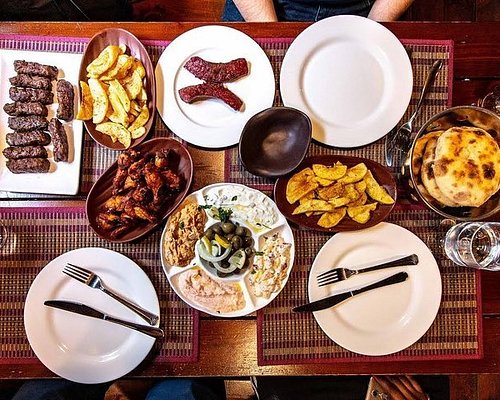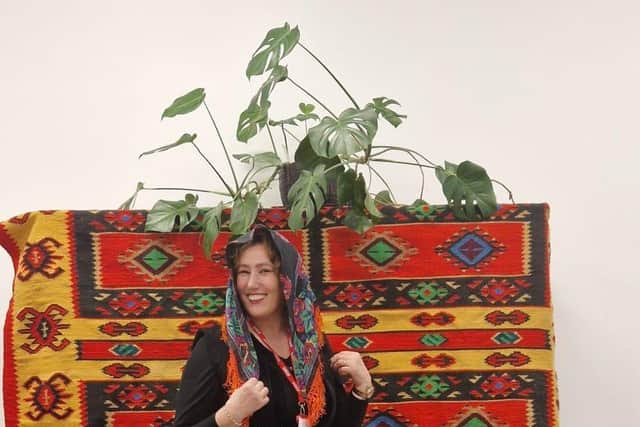
Introduction
Overview of Albania
Albania, nestled in the heart of the Balkans along the Adriatic Sea, is a country rich in natural beauty and cultural heritage. From its rugged mountains to its pristine beaches, Albania offers a diverse landscape that appeals to travelers and culture enthusiasts alike. Visitors can explore historic sites, charming villages, and vibrant urban centers.
Significance of Albanian Culture
Albanian culture is a tapestry woven through centuries of history, reflecting influences from various civilizations. Its significance lies in:
- Traditions : Unique customs and festivals that celebrate the Albanian spirit.
- Art Forms : A rich legacy of music, dance, and crafts that express the national identity.
- Community Values : A strong sense of hospitality and kinship that welcomes newcomers.
Experiencing Albanian culture can be life-changing, as it provides incredible insights into a vibrant and resilient society.

History of Albania
Ancient Origins
Albania’s history dates back to ancient times, with roots tracing back to the Illyrians, a group of tribes known for their warrior culture. This rich heritage is illustrated in archaeological sites, such as:
- Butrint : A UNESCO World Heritage site showcasing Roman and Greek ruins.
- Apollonia : An ancient city that was a center of learning and culture.
Ottoman Influence
The Ottoman Empire profoundly shaped Albanian society from the 15th century until the early 20th century. This period introduced:
- Cultural Syncretism : A blend of Islamic and Christian traditions.
- Architectural Marvels : Mosques and bridges that reflect Ottoman artistry, like the Et’hem Bey Mosque in Tirana.
Personal anecdotes reveal how locals celebrate both Islamic and Christian holidays, symbolizing the country’s unique coexistence.
Communist Era
Following World War II, Albania became a communist state under Enver Hoxha, isolating itself from the rest of the world. This era was marked by:
- Political Repression : Suppression of dissent and heavy surveillance.
- Economic Autarky : An emphasis on self-sufficient agriculture, often at the expense of development.
In reflecting upon these turbulent times, one can see how resilience shaped the modern Albanian identity, leading to the thriving nation we see today.

Albanian Traditions and Customs
Festivals and Celebrations
Albania is vibrant during its festivals, showcasing its rich heritage and community spirit. Celebrations such as:
- Dita e Verës (Summer Day) : Welcoming the arrival of spring with traditional rituals and feasts.
- Bajram and Christmas : Observed with warmth and joy, representing the country’s religious diversity.
These events offer an immersive experience of Albanian culture. Personally, experiencing Dita e Verës in Berat was magical, with families gathering in parks, sharing food, and enjoying folklore performances.
Traditional Clothing
Traditional Albanian clothing, known for its intricate designs and bold colors, tells stories of the past. Key elements include:
- Qeleshe : A white felt cap worn by men, symbolizing pride.
- Xhamadan : A traditional waistcoat, often adorned with embroidery, giving a glimpse into regional styles.
Many women dress in beautiful folk dresses during festivals, showcasing their heritage and craftsmanship.
Folk Music and Dance
Folk music and dance are quintessential aspects of Albanian culture, reflecting its history and emotions. Instruments like the lute and çifteli create a unique sound that resonates at celebrations. Popular elements include:
- Ballads : Storytelling through music, often about love and heroism.
- Dancing : Traditional dances like Vallja bring communities together, allowing individuals to connect through movement.
Participating in a folk dance during a summer festival revealed the joyful unity of Albanians, where every step intertwined with shared history and celebration. These customs paint a vibrant picture of Albania’s cultural landscape, enriching the lives of its people.

Cuisine of Albania
Popular Dishes
Albanian cuisine is a delightful fusion of flavors and traditions that reflects its cultural influences. Among the must-try dishes are:
- Tave Kosi : A delicious baked dish made with lamb, rice, and yogurt.
- Fërgesë : A hearty dish featuring peppers, tomatoes, and cottage cheese.
During a recent trip to Tirana, savoring Tave Kosi in a local restaurant was a culinary highlight, as its rich flavors offered a true taste of home cooking.
Unique Ingredients
Albanian cuisine utilizes fresh, local ingredients that bring each dish to life. Some unique staples include:
- Wild herbs : Such as rosemary and oregano, often handpicked from the countryside.
- Feta cheese : An essential component, adding zest to salads and main courses.
These ingredients contribute to the authenticity and robustness of Albanian meals, making every bite unforgettable.
Dining Etiquette
Dining in Albania is a cherished experience, laden with customs that deepen the flavors of the meal. Important etiquette to keep in mind includes:
- Hospitality : Guests are honored and often served multiple courses.
- Toasting : It’s customary to toast with “Gëzuar,” meaning “Cheers!” before sipping your drink.
I remember feeling welcomed when a local family invited me to their table, illustrating the significance of sharing food and fostering connections—an essential aspect of Albanian culture. Embracing these traditions, one can not only indulge in culinary delights but also enjoy the warmth of Albanian hospitality.

Arts and Crafts
Albanian Artistic Heritage
Albania’s artistic heritage is a vibrant testament to its rich cultural tapestry, merging influences from various epochs. The country is known for its:
- Paintings and Murals : Many towns boast stunning frescoes and murals that narrate local history.
- Sculptures : Notable figures such as Ismail Qemali are immortalized in bronze, celebrating national pride.
During my visit to the National Museum of History in Tirana, I was captivated by the intricate artistry that depicted Albanians’ struggles and triumphs, which truly showcases the collective identity of the nation.
Traditional Handicrafts
Traditional handicrafts are an essential part of Albania’s cultural identity, offering a glimpse into the craftsmanship passed down through generations. Key examples include:
- Handwoven Rugs : Known for vibrant colors and complex patterns, each rug tells a story.
- Pottery : Artisans create functional yet beautiful pieces, often inspired by local nature.
One afternoon while exploring the craft markets in Gjirokastër, I picked up a handmade rug that reminded me of the stories shared by the weavers, expressing their heritage through their craft. These handicrafts not only support the artisans but also preserve the heart of Albanian culture, allowing visitors to take home a piece of its artistry.

Religion in Albania
Historical Background
Albania’s religious landscape is deeply intertwined with its history, marked by the footprints of various civilizations. After the arrival of Christianity in the 1st century, Albania witnessed the rise of Islam beginning in the 15th century with the Ottoman Empire’s expansion. This shift resulted in a notable transformation, with:
- Orthodox Christianity establishing roots in the south.
- Islam becoming prevalent in the central and northern regions.
During my travels, visiting the ancient Church of St. Mary in Vithkuq, I could sense the historical reverence and coexistence of faiths that have shaped the nation.
Religious Diversity
Albania is often praised for its remarkable religious tolerance and diversity. This coexistence is evident in the harmonious relationship among:
- Muslims (both Sunni and Bektashi sects)
- Orthodox Christians
- Catholics
Festivals and religious events, regardless of denomination, are celebrated with community spirit. When I attended a local celebration during Ramadan, it was heartwarming to see friends from different faiths come together for a festive meal, exemplifying Albania’s commitment to unity and respect. This vibrant religious tapestry enriches the country’s cultural fabric, highlighting Albania’s unique identity as a multicultural nation.

Language and Literature
Albanian Language
The Albanian language is a unique gem, belonging to the Indo-European family but distinct in its origins and structure. It boasts two primary dialects: Gheg spoken in the north and Tosk in the south. This linguistic richness is characterized by:
- Unique Vocabulary : Many words have roots in ancient languages, reflecting Albania’s diverse history.
- Complex Grammar : With its noun cases and verb conjugations, mastering Albanian is a rewarding challenge.
During my attempt to learn a few phrases while visiting, locals were incredibly welcoming, often willing to teach me simple greetings like “Përshëndetje” for hello and “Faleminderit” for thank you, showcasing their pride in the language.
Literary Achievements
Albanian literature is a treasure trove of history, culture, and innovation, spanning from ancient folklore to contemporary prose. Notable contributions include:
- National Epic Poetry : Works like the “Iliad of the Albanians,” rich in heroic tales and folklore.
- Contemporary Writers : Figures such as Ismail Kadare, whose novels have garnered international acclaim and helped place Albanian literature on the global stage.
Exploring the works of Kadare in a cozy Tirana bookstore, I was captivated by the lyrical quality of his prose, which reveals the soul of the Albanian spirit. These literary achievements highlight not only the beauty of the Albanian language but also its vital role in preserving cultural identity and narrating the nation’s story.

Modern Cultural Influences
Globalization Impact
Globalization has significantly shaped modern Albanian culture, introducing both challenges and opportunities. With the influx of international ideas, technology, and trends, Albanian society is experiencing:
- Cultural Exchange : Increased interactions with global cultures have spurred a blending of traditions.
- Economic Growth : Enhanced trade and tourism are injecting vitality into local economies and cultural practices.
During my stay in Albania, I noticed how cafes and restaurants offered international cuisines alongside traditional dishes, illustrating this blend.
Contemporary Art and Music
The contemporary art scene in Albania is thriving, marked by the emergence of innovative artists and musicians who draw on local themes while engaging with global influences. Highlights include:
- Visual Arts : Galleries in Tirana showcase works that reflect both traditional motifs and modern perspectives.
- Music : A fusion of folk with pop and electronic genres creates a unique sound that resonates with younger generations.
I attended a local concert where traditional Albanian rhythms fused seamlessly with modern beats, creating an electric atmosphere. This vibrant culture flourishes as artists use their platforms to express identity, bridging the gap between the past and the future. The ongoing evolution of Albanian culture paints a dynamic picture of a country embracing its heritage while confidently facing the global stage.

Tourism and Cultural Experiences
Cultural Sites to Visit
Albania’s rich history is vividly displayed across its cultural sites, making it a captivating destination for travelers. Must-visit locations include:
- Butrint : A UNESCO World Heritage site, this ancient city is filled with ruins from various epochs, showcasing its historical significance.
- Gjirokastër : Known as the “City of Stone,” its Ottoman architecture and well-preserved castle are fascinating explorations into the past.
While walking through the ancient ruins of Butrint, I imagined the lives of those who once thrived in this remarkable area, deepening my appreciation for Albania’s heritage.
Immersive Cultural Activities
To truly grasp the essence of Albania’s culture, engaging in immersive experiences is essential. Some noteworthy activities include:
- Traditional Cooking Classes : Learning to prepare dishes such as byrek offers insight into local flavors.
- Folk Dance Workshops : Joining a workshop celebrates community and teaches cherished traditions, such as the Vallja dance.
Participating in a cooking class in Tirana was a delightful adventure; I not only savored delicious food but also formed friendships over shared culinary experiences. These cultural activities enrich the travel experience, allowing visitors to connect deeply with the Albanian way of life. Whether exploring historical landmarks or engaging in local practices, each moment spent in Albania unveils layers of tradition, pride, and community spirit, promising unforgettable memories.

Preserving Albanian Heritage
Efforts in Cultural Preservation
Albania is committed to preserving its rich cultural heritage through various initiatives, showcasing the importance of maintaining traditions. Key efforts include:
- UNESCO Designation : Sites like Butrint and Gjirokastër are protected to promote heritage awareness.
- Local NGOs : Organizations are actively involved in the restoration of historical sites and supporting traditional craftsmanship.
During my visit to Gjirokastër, I witnessed local artisans dedicated to preserving their skills, creating beautiful handcrafted items that tell the story of their ancestors.
Challenges and Future Outlook
While significant strides are being made in cultural preservation, challenges remain. These include:
- Urbanization : Rapid development often threatens historical sites.
- Funding : Limited resources inhibit the ongoing conservation efforts needed for maintaining cultural heritage.
Despite these challenges, the future outlook is promising. Increased international interest in Albania as a travel destination is fostering support for cultural preservation. Communities are coming together, recognizing the value of their heritage and emphasizing active participation in safeguarding it. My conversations with locals revealed a collective desire to cherish their unique identity, ensuring that Albania’s rich culture continues to thrive and inspire future generations.



